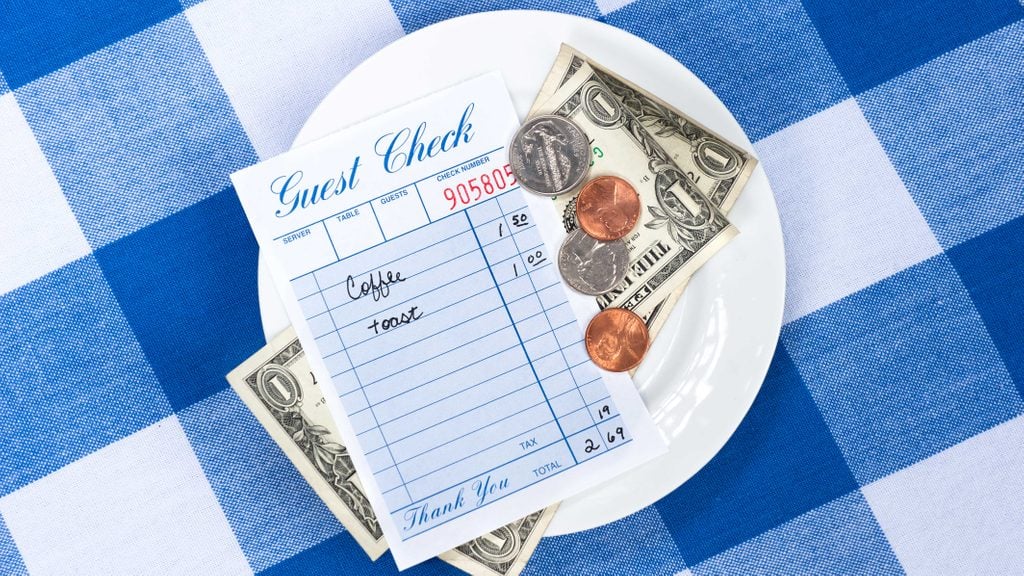Is It Legal for Restaurants to Include Mandatory Tip?
Updated: Nov. 01, 2023

Tips and services charges aren't synonymous.
Sometimes it’s a challenge to figure out how much to tip or who picks up the tab after a nice meal. Restaurants occasionally include helpful info at the bottom of the check where they calculate a 15, 20, and 25 percent tip—making it that much easier to leave some money for your server. If you take a closer look at your bill, you might also see a fee, but don’t mistake it for a mandatory tip.
There’s no law requiring customers to leave a tip
No law exists requiring customers to leave a tip, according to Abe Cohn, Managing Partner of Cohn Legal, PLLC. If something is mandatory, it’s technically not really a tip, according to Jordan Bernstein, a Los Angeles-based attorney representing chefs and hospitality practices. The IRS defines a tip as something optional or extra that only the customer determines, Bernstein says.
Restaurants can include a service charge
Some people mistakenly assume automatic service charges are tips, but this is revenue or property for the restaurant—not necessarily the employee, Bernstein says. So it’s technically not a “mandatory tip.” And yes, it’s legal for restaurants to include this fee. “Sure, it’s legal, and in fact, restaurants have been using them for large parties for years,” Joe Bogdan, a partner in the law firm of Culhane Meadows says.
Servers don’t always see the money from service fees or charges because restaurants aren’t required to pass that money onto staff, attorney Scott Perlmuter explains. Think of it more as a cover charge than a tip for your waiter. Some restaurants do choose to give servers some of this money and apply the portion they give against their minimum wage obligations, Perlmuter says. Anything leftover goes to the restaurant. This strategy is one of the reasons why service charges are gaining popularity, according to Perlmuter. So although this fee adds to the bottom line cost of your meal, it’s not necessarily direct money in the pocket of your server. And it’s one of the things your server wishes they could tell you.
Specific rules depend on where the restaurant is
Service charges might be legal, but both the IRS and the Department of Labor regulate them, Perlmuter says. “As a general matter, it’s important to understand that laws and regulations concerning restaurants operate on the level of the State and local governments,” Cohn adds. “Therefore, depending on the location of the restaurant, different laws will dictate what is necessary and acceptable.” There are various laws about tip credit per state and other rules regarding tips that are more complicated. If you’re out of the country, you need to know these tipping etiquette rules from around the world.
If a restaurant charges automatic gratuity, it must be made clear
Restaurants must let customers know in advance of the surcharge for automatic gratuity for large parties. “It is entirely acceptable and indeed common, for a restaurant to add an additional 20 percent gratuity charge on a bill with eight or more guests,” Cohn says. “But such a fee is only permissible if the policy is made abundantly clear to the customers before the order is placed.” That’s why you’ll often see in small print “parties of eight or more will incur a 20 percent gratuity fee.”
